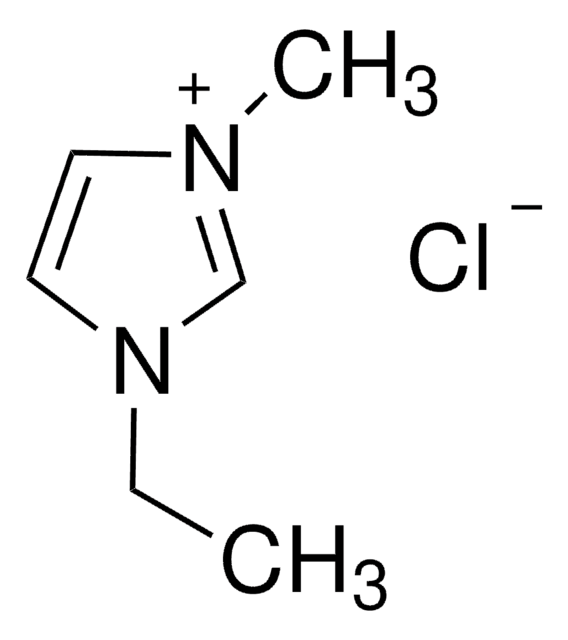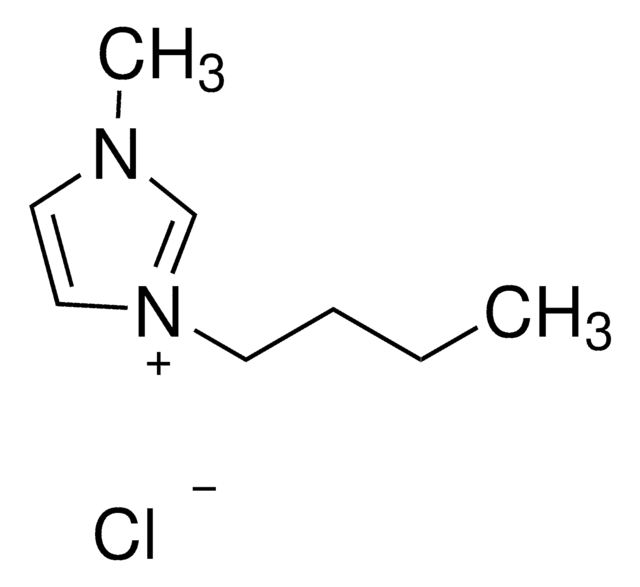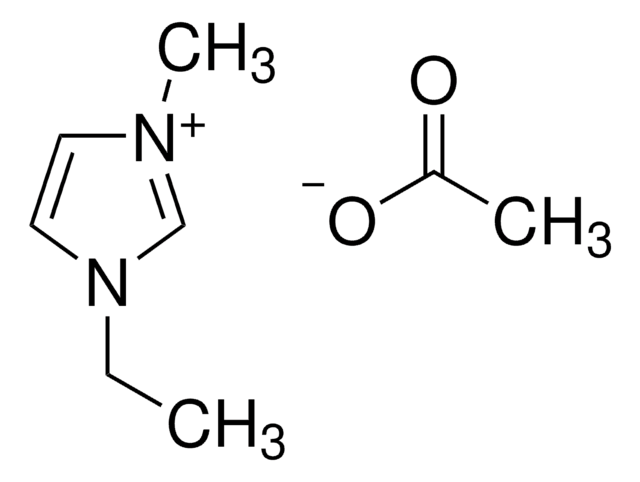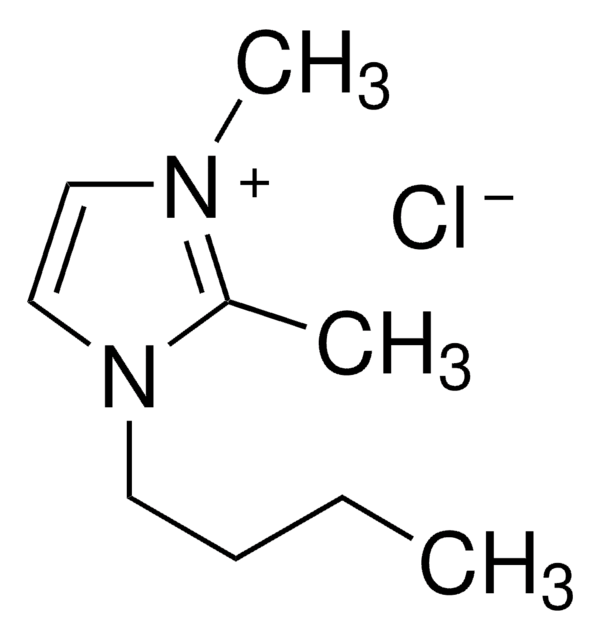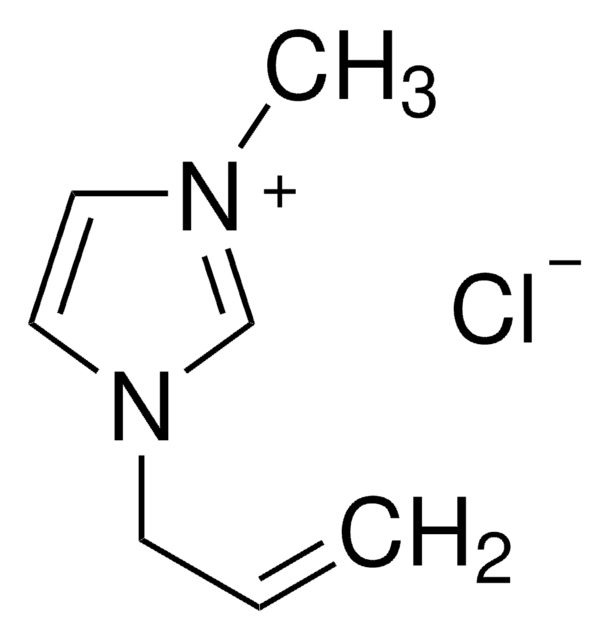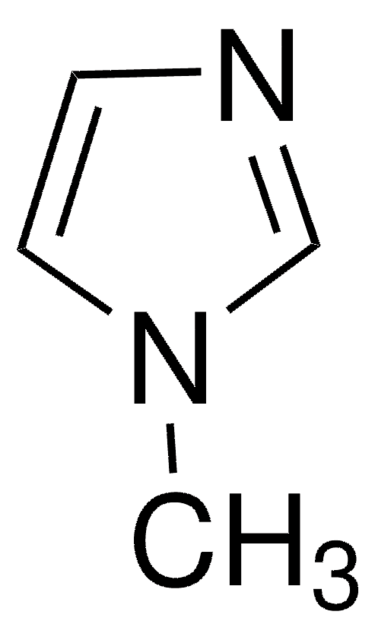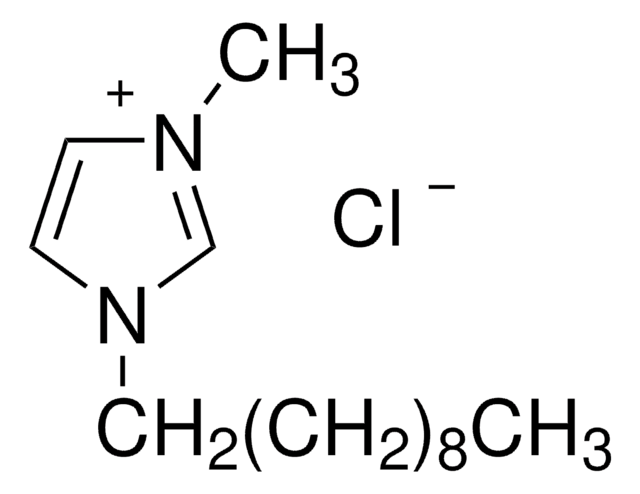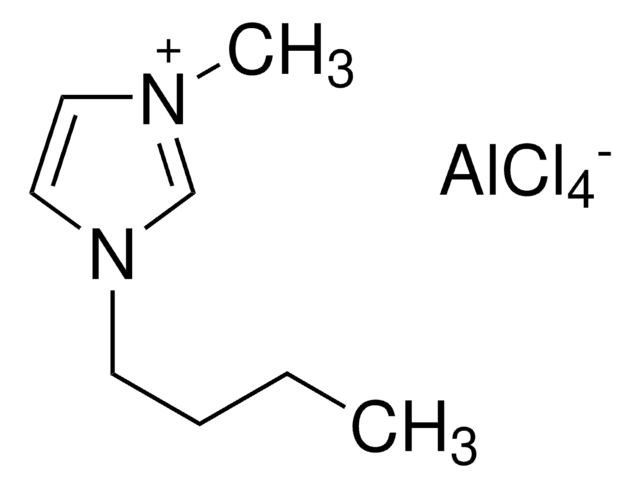900771
1-Ethyl-3-methylimidazolium chloride
>99%
Synonym(s):
1-Ethyl-3-methyl-1H-imidazolium chloride, 1-Methyl-3-ethylimidazolinium chloride, N-Methyl-N′-ethylimidazolium chloride
About This Item
Recommended Products
Quality Level
Assay
>99%
form
crystals
greener alternative product characteristics
Safer Solvents and Auxiliaries
Catalysis
Learn more about the Principles of Green Chemistry.
sustainability
Greener Alternative Product
impurities
≤2000 ppm H2O
mp
77-79 °C (lit.)
density
1.189 g/cm3
application(s)
battery manufacturing
greener alternative category
SMILES string
[Cl-].CCn1cc[n+](C)c1
InChI
1S/C6H11N2.ClH/c1-3-8-5-4-7(2)6-8;/h4-6H,3H2,1-2H3;1H/q+1;/p-1
InChI key
BMQZYMYBQZGEEY-UHFFFAOYSA-M
Looking for similar products? Visit Product Comparison Guide
General description
Application
related product
Signal Word
Warning
Hazard Statements
Precautionary Statements
Hazard Classifications
Acute Tox. 4 Oral - Eye Irrit. 2
Storage Class Code
11 - Combustible Solids
WGK
WGK 1
Flash Point(F)
370.4 °F - closed cup
Flash Point(C)
188 °C - closed cup
Choose from one of the most recent versions:
Certificates of Analysis (COA)
Don't see the Right Version?
If you require a particular version, you can look up a specific certificate by the Lot or Batch number.
Already Own This Product?
Find documentation for the products that you have recently purchased in the Document Library.
Customers Also Viewed
salt ionic liquid as a catalyst
Articles
Dr. Sun reviews the recent advances in solid-state rechargeable batteries and cover the fundamentals of solid electrolytes in solid-state batteries, the theory of ion conduction, and the structures and electrochemical processes of solid-state Li batteries.
Here, we present a short review of ionic liquid electrolytes used in state-of-the-art rechargeable batteries including high performance and low-cost aluminum batteries, non-flammable Li-based batteries, and high-cycling and stable dual-graphite batteries. We also outline the key issues explored so as to identify the future direction of IL development.
Our team of scientists has experience in all areas of research including Life Science, Material Science, Chemical Synthesis, Chromatography, Analytical and many others.
Contact Technical Service